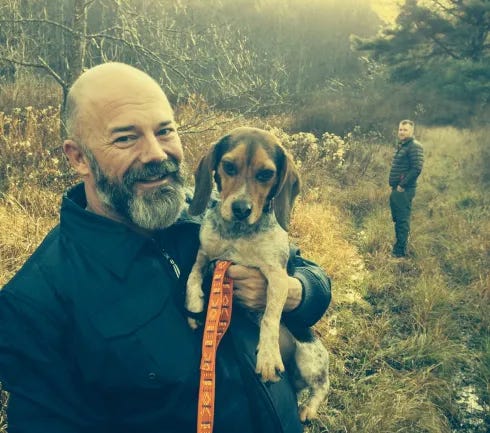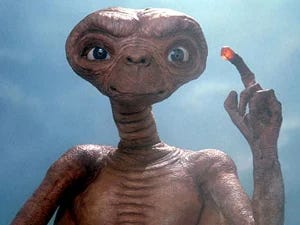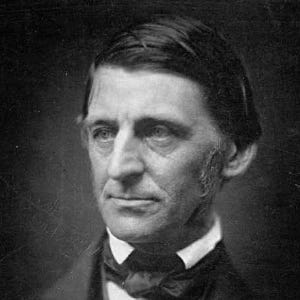Quitting the Dish, Part II
On a frigid afternoon in January 2014, I boarded a train in Penn Station to visit Washington, D.C. for the weekend. I was just getting settled when, to my astonishment, I saw that the man facing me was none other than the writer I’d been reading religiously the past decade. “This is going to be a little distracting,” I said. “I’ve forwarded probably 200 of your articles to my sister. I consider you part of my family.”
Andrew Sullivan smiled, put his hand on his heart, and said “Thank you.” And with an immediate candor of his own he said he’d been feeling depressed, not sure whether he could continue the labor of love—his world-renowned blog, the Dish—that readers had grown to count on. But hearing such support, he said, was what kept him going. It reminded him why he worked so hard.
He’d grown a beard and looked a little older than I had imagined him to be. (He was then 50; I was 34.) He also looked tired. He was wearing jeans and a T-shirt that read Friendship Rules.
The train left the station, and two hours of silence followed. (We were seated in the Quiet Car, where talking was prohibited.) I sat calmly, though adrenaline was coursing through my veins. When I was 11, in 1990, I once found myself sitting unexpectedly at the feet of Michael Jordan, at Dean Smith’s basketball camp. Smith, the legendary coach of UNC Chapel Hill, had asked his former player to come give a lesson to the campers, who sat there awestruck as he spoke and then demonstrated some pump-fakes. Scarcely would we have been more electrified had E.T. himself flown in on a bicycle and placed Reese’s Pieces on each of our tongues.
Jordan was a god in my imagination then, yet that feeling could not match what I felt at sitting across from Andrew Sullivan. He had become a moral, even spiritual guide—one I had turned to time and again throughout a turbulent decade. I’d even gone to journalism school, inspired in part by his example. For years I’d wanted to write to him but had never brought myself to do so.
Some 20 minutes before the train arrived, Sullivan leaned forward and turned his laptop around to share what he’d been writing: his annual letter asking readers to subscribe. In a hushed tone, we spoke for the rest of the trip. It felt as though we were picking up a conversation running for years. I told him about the heartbreak at seeing North Carolina, where I grew up, fall under the sway of ideology, enacting discriminatory voting laws and turning back the clock on social and environmental issues. We discussed the intractability of the fundamentalist mindset and the way Fox News exploited the fears and insecurities of its audience, creating an alternate reality in which the likes of moon-landing-deniers were given more credence than climate scientists. Our skulls were closer than my eyes typically were from the screen when reading his blog, but not a moment passed that felt awkward, forced, or anything other than a genuine instance of what might best be described as Dishness.
The train came to a halt and we walked out of Union Station into the night. I shook his hand and promised to be in touch. I felt the surreal sense of being in a dream that my subconscious had cooked up for my own catharsis. But Sullivan had been real—as good of a listener, as humble, as generous as I had imagined. He was, to me, a voice the way Ralph Waldo Emerson or Oscar Wilde were voices in their own time. It seemed somehow unfair that I’d caught him in the flesh.


